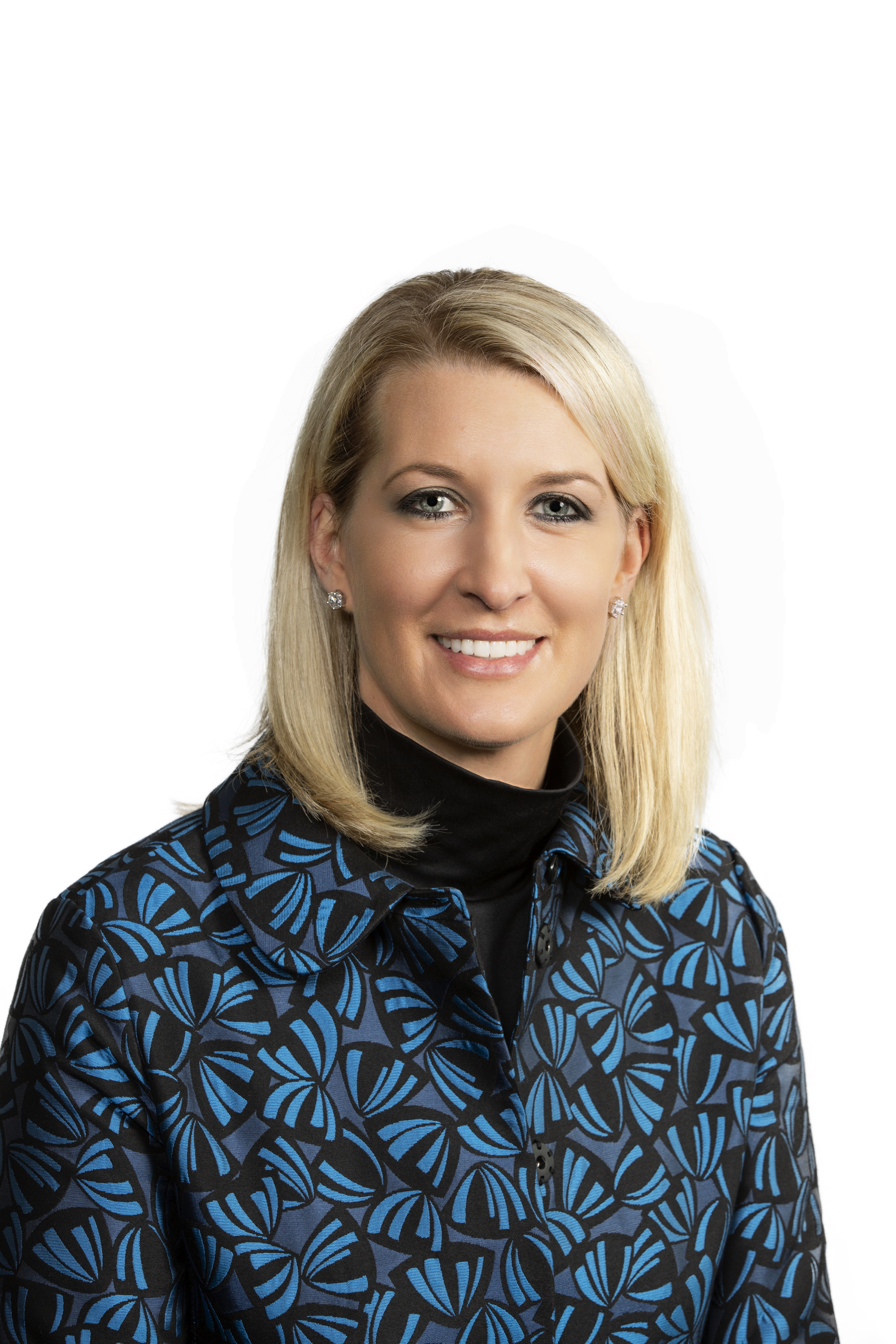
Julie Genjac is Vice President and Managing Director of Applied Insights at Hartford Funds. She works with financial advisors in a practice-management capacity, including engaging and educating advisors and their clients about current and emerging opportunities in the financial services marketplace.
Here is what Julie had to say when we asked her about leadership:
GenHERation®: How do you define leadership?
Julie Genjac: Leadership is about getting things done, inspiring action, and setting a positive example.
GenHERation®: What qualities make an individual a leader?
Genjac: The book, The Leadership Challenge (by Kouzes and Posner), has helped me shape my thoughts on leadership. After much research, the authors narrowed leadership into four main traits—honest, competent, inspiring, and forward-looking. When I reflect on the outcome of Kouzes and Posner’s research, I agree wholeheartedly with their assessment. We can refer to these four traits by using other words or synonyms, but at the end of the day, my guess is that any leader whom you respect would embody (at least to a certain degree) these traits.
GenHERation®: What do you think are common misconceptions about leadership?
Genjac: One of the biggest misconceptions people have when it comes to leadership is that you have to be “the leader” to be “a leader.” What I mean by this is that oftentimes people believe they need to reside at the top of the organizational chart in order to be a leader. You need to be the CEO or President to lead. This is not the case whatsoever. While individuals at the top are usually leaders, leadership happens every day, in every way, at every level of the organizational chart. We are all leaders if we conduct ourselves in ways that are honest, competent, inspiring, and forward-looking.
GenHERation®: How can one be a leader each day? Whether this is at home, school, or work?
Genjac: I can’t emphasize this enough, but embody the four leadership traits (honest, competent, inspiring, and forward-looking) and work on strengthening the trait(s) that may not come naturally to you. To be honest, be transparent with yourself and others. Make sure you know what you are talking about, and if you don’t, then research it or engage help. Don’t try to be things that you are not. Saying, “I don’t know, but let me look into this and get back to you” earns you a lot more credibility than trying to be all things to all people. To be competent, empower yourself with the tools that allow you to be successful in your role. This could be knowledge, ability, or skill—whatever it is, be prepared, so you can put your best foot forward. To be inspiring, make your energy infectious. Have passion for what you’re doing. It will be noticed and motivate others to act through your own actions. To be forward-looking, be a visionary. Think about where things are headed. Don’t just stay in the now. Venture to think about the future and how today’s actions will have an impact down the road.
GenHERation®: How would you characterize your leadership style?
Genjac: I am a “get things done” type of leader. We can chat, strategize, plan, envision, and document the plans. However, at the end of the day, results and execution matter in getting things done. In getting things done, I am not a micro-manager. I believe that if you bring the right people on to your team and trust them, they will get their work done in whatever way matches their strengths and skill sets. I believe the best way to communicate with your team is to be open and give honest feedback. I am willing to have the tough conversations, which I call “courageous conversations” because I truly believe people cannot change, learn, and grow if they are unaware and have not received the gift of feedback.
GenHERation®: Who is a leader that inspires you?
Genjac: There are so many incredible leaders in our world from very high-profile and visible ones to those not in the headlines working extremely hard to have an impact on their organization. It would be impossible for me to choose one person. One thing I will say is that every great leader that I have ever had the pleasure of interacting with (and learning from) has told me that they have a trusted accountability partner of their own. It is that person whom they can completely open up to; commit their goals to; that person who motivates them on days when they feel deflated; that person who is not afraid to tell them the truth, even if it’s not what they want to hear. It all starts and ends with accountability. Take a page from the great leaders’ book, find yourself an accountability partner, and then start setting goals!
GenHERation®: Why do you think leadership is important especially among women?
Genjac: Oftentimes, women don’t speak up and share their thoughts for many reasons. I know that at times in my career I have worried that I am the most junior person at the table and my opinions and thoughts may not matter. Or, that I am not an “expert” on the topic at hand; therefore, I should probably not say anything. I think that we all second guess ourselves at times, which leads to an erosion of confidence. I believe that words matter. Every word matters. Every action matters—even inaction. It starts with believing in yourself; having passion for your cause; being willing to take a small risk to speak up; and choosing your words wisely. A mentor of mine once told me that “I am not the 17-year-old financial services intern that I used to be” when I first started my career. He told me that “my organization not only wants, but needs, my thoughts and ideas.” That statement was a game-changer for me. I was not seeing myself as the seasoned, experienced industry professional that I was at times, and that was holding me back. I decided from that moment on to be the leader that I know that I am every single day.
In addition, I think women have an incredible “gut instinct.” I can tell you that mine has never led me astray and that my only error has been not listening to it from time to time in my life and career. Take that extra moment to listen to what your gut instinct is telling you. Write those thoughts down. Are they founded or unfounded? What are the pros and cons of the decision? Take the time to think deeply, but at the end of the day let your gut instinct be your guide.
Julie Genjac is Vice President and Managing Director of Applied Insights at Hartford Funds. She works with financial advisors in a practice-management capacity, including engaging and educating advisors and their clients about current and emerging opportunities in the financial services marketplace. These range from areas such as retirement-income planning, investment planning, and charitable giving, to anticipating and preparing for long-term demographic and lifestyle changes. Prior to joining Hartford Funds, Julie was a Senior Vice President and Director of Practice Management & Professional Development at D.A. Davidson & Co. Julie’s many responsibilities included the creation and implementation of all advisor coaching and training programs to enhance productivity and the client experience. Julie began her career at UBS PaineWebber and transitioned to become a wealth-management financial planner at Wells Fargo. In 2019, Julie was recognized by Money Management Executive on their annual “Top Women in Asset Management Awards” list. Originally from Bellevue, Washington, Julie attended the University of Washington where she received a bachelor’s degree in Economics. She currently lives in Kirkland, Washington, with her husband, Nedim.



Comments (0)